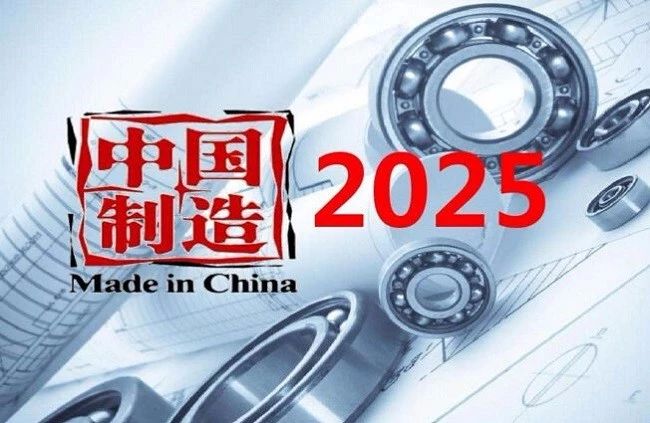Just touch your finger and a private custom dress will be delivered to your hand within 7 working days. Some textile companies combine the Internet, digital technology and traditional manufacturing industries to realize the industrial production of personalized customized clothing.
However, for more than 30,000 enterprises above designated size in the national textile industry, this is only a demonstration. At present, the overall foundation for the development of smart manufacturing in China's textile industry is relatively weak. It is still at the stage where the industry 2.0 and 3.0 meet and the industry 4.0 develops.
How to link the textile industry to "Made in China 2025"? What new developments can smart manufacturing bring to the textile industry? The following three aspects give the answer.

Traditional industrial thinking mode to be changed
An indisputable fact is that China’s competitive advantage as a low-cost manufacturing country is gradually losing. With the increase in the cost of labor and other factors and other factors at home and abroad, the profit growth rate of textile enterprises has dropped from 43.9% in 2011 to 5.3% in 2015.
"In the next 5-10 years, intelligent manufacturing is a reliable guarantee for the sustainable development and high-end development of China's textile industry," said Sun Jinliang, an academician of the Chinese Academy of Engineering.
However, he found in the survey that a large number of textile companies still remain in the traditional industrial thinking. Equipment is not interconnected, processes are not interoperable, products are not interactive, there are many organizational structures, manufacturing scale, product homogeneity, high factor costs, and weak competition.
“Common technology lays the foundation for the development of intelligent manufacturing in the textile industry.” Yu Jianyong, an academician of the Chinese Academy of Engineering, said that the textile industry must successfully transform and move toward smart manufacturing. The first problem to be solved is to realize the interconnection of equipment and eliminate information islands.
At present, many textile enterprises in China are actively exploring in this area. Shandong Huaxing Textile Group realizes automatic production line from raw material input to package into storage through the application of generic technologies such as material identification, equipment integration and industrial control network. It can increase production efficiency by 30%, shorten product production cycle by 35%, and reduce labor costs. Up to 70%, integrated operating costs reduced by 25%.
“In the manufacturing process, through the automated collection, statistics, analysis and feedback of various data generated by the machine, the results are used to optimize the manufacturing process and greatly increase production efficiency,” Yu Jianyong said.
Machine substitutions highlight the talent and technology bottlenecks
The substitution of machinery is an obvious sign of the development of the textile industry from traditional manufacturing to intelligent manufacturing. However, machine substitutions do not require people. “The most critical issue at the moment is precisely the talents with the knowledge and ability to integrate textile manufacturing technology with Internet technology.” He Yanli, vice president of China Chemical Fiber Industry Association, frankly stated.
Many years ago, the textile industry required excellent car mechanics, mechanics, and marketing clerk. With the advancement of intelligent manufacturing in the textile industry, companies urgently need to combine various levels of robotic craftsmen, network engineers, and automatic control engineers who are familiar with the characteristics of textile processes. Talents.
"The lack of such talent is also reflected in the education field." He Yanli said that there are problems with ageing curriculum, lack of cross-subjects, and the need for professional education to be disconnected from the business.
In addition to the scarcity of talent, the technological resources for promoting smart manufacturing in the textile industry are also weak.
At present, the annual domestic R&D investment intensity of the chemical fiber manufacturing, textile, and clothing apparel industries, which belong to the textile industry, is less than 1%, and it ranks among the middle and lower reaches of 32 manufacturing industries.
“In theory, companies have R&D investment of 3% of sales revenue, but the R&D funds invested are mainly used for the introduction and renewal of hardware facilities, and the input for true R&D of key manufacturing technologies related to smart manufacturing is generally low,” said Yu Jianyong.
The country’s investment in the intelligent manufacturing technology of the textile industry is relatively small, and there is no corresponding scientific and technological innovation base and service platform. To this end, Yu Jianyong suggested that textile manufacturing be the main body and cross-sectoral organizations should jointly carry out scientific and technological research.
Turning to a new service-oriented manufacturing model
On the one hand, the development of computers, networks, and equipment manufacturing has driven the textile industry's manufacturing technology from automation and digitization to intelligentization. On the other hand, the development of the Internet economy has also prompted the transformation of the textile industry to a new model of service-oriented manufacturing.
Statistics show that in 2016, the total value of China's textile and apparel e-commerce transactions reached 4.45 trillion yuan, which was 2.4 times that of 2012. Online marketing of textile and apparel products is maturing.
“A large-scale personalized customization of the new generation of textile and apparel products driven by the user's individual needs and full user participation in the process has become a new dynamic in the development of the textile industry,” said Chen Wenxing, the president of Zhejiang University of Science and Technology.

At present, the large-scale personalized customization services of domestic garment enterprises have entered the growth stage, and a number of leading companies have emerged. For example, the “Yingyi interconnection” intelligent system reported by the Singbird Group uses the Internet to collect and match the individual needs of users. Since its operation, it has broken the bottleneck of the industry's high inventory, low turnover, and high channel costs, bringing good economic benefits to the company. .
“Intelligent manufacturing of the textile industry not only includes digital technology represented by computer digital control throughout the entire product life cycle, but also focuses on breakthroughs in the realization of networked manufacturing under ubiquitous sensing and interconnection conditions,” said Sun Jinliang.
He is looking forward to leading China's textile industry from labor-intensive and resource-consuming to technology-intensive with intelligent manufacturing, from manufacturing to innovation, speed to quality, and product to brand development, and taking the lead in the traditional industries in China to the high end.

Yancheng Ruize Masterbatch Co., Ltd. mainly produces and operates: Non-woven masterbatch, Non-woven antibacterial masterbatch,antistatic masterbatch, polypropylene filament masterbatch, Polypropylene filament masterbatch, Non-woven masterbatch, polypropylene spunbond non-woven masterbatch, Polypropylene fiber masterbatch, chemical masterbatch, Non-woven masterbatch, polypropylene masterbatch, Soft hydrophilic masterbatch.
- Mizlion made a stunning appearan
- Why is it said that polypropylen
- The impact of the Federal Reserv
- Chemical fibers "carry static el
- What are the core considerations
- The High Performance and High Fu
- At the end of the year, a new ch
- Exhibition Invitation: Ruize Mas
- Ruize Masterbatch congratulates

